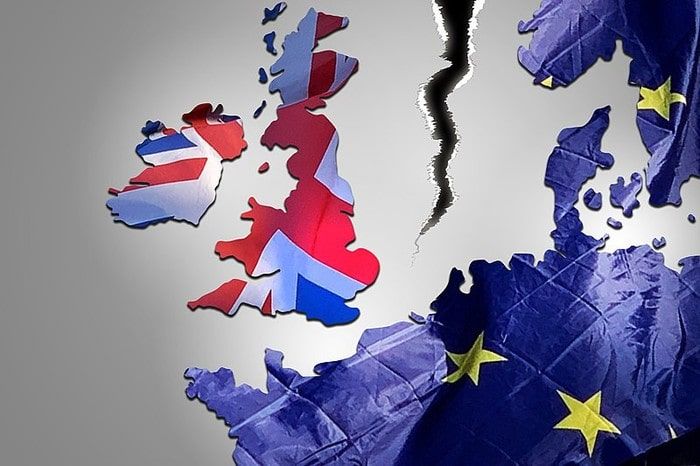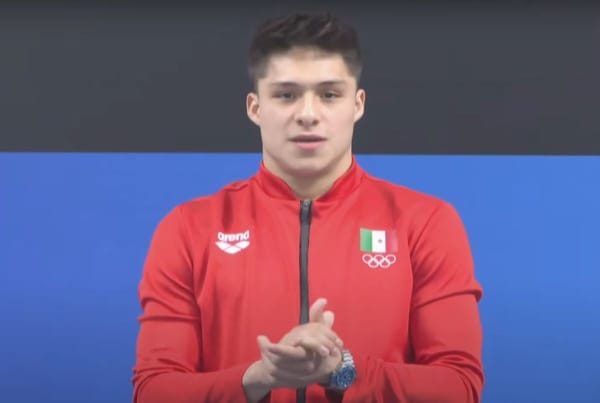ANDREW DAVIS: Post Brexit Negotiations: A Possible Way Forward
On February 1, 2020, Brexit day, the final curtain officially came down on the United Kingdom's membership in the European Union, and we thought the whole mess of the withdrawal saga was finally behind us.

On the 1st of February 2020, Brexit Day, officially the final curtains went down on the UK being part of the European Union, and we thought the whole mess of the withdrawal saga was finally behind us. However, this was far from the truth; a new round of talks for a "new relationship" between the United Kingdom and the European Union was nigh. The two entities still depended on one another commercially and needed to formulate a trade agreement. The task of what should have been a straightforward process would start with conflict, be interrupted by a pandemic, and is now in risk of abandonment by both parties. What is going wrong? How can the negotiators break the impasse?
It would be a good idea to point out who the main personalities are featured in the talks, as they pop up the most frequently in news stories. The chief negotiators are Michel Barnier on the part of the European Union, and David Frost from the United Kingdom. Influencers are Angela Merkel President of the European Union, and Ursula von der Leyen European Commission President. On the UK side, Boris Johnson Prime Minister, and Michael Gove Cabinet Office Minister.
Negotiations officially began in March, though since were understandably delayed due to the coronavirus pandemic, continued via videoconference, and are currently in fifth round face-to-face. The UK claims a preliminary agreement can be reached in September, but it seems more likely that if one can be achieved at all this year, an outline may be agreed in October in time for ratification by December. Originally the end of June was the deadline for calling for an extension for talks beyond December; this was rejected, so the assumption is that in January 2021 there will either be a signed free trade agreement or both parties will operate under World Trade Organization rules.
Firstly, all parties needed to recognize that every trading relationship is unique. The UK implied in their opening stance that the 'Canadian' or 'Australian' solutions would have been acceptable. The truth is that the UK does not have the same trading pattern with the European Union as those of Canada nor Australia; the idea of non-alignment of norms with Europe makes no sense for a country which is highly interdependent with the European economy. It would be more shrewd to offer acceptable scenarios which fit the needs and accommodate expectations of both the UK and the EU.
Successful win-win negotiations need to start by both parties deciding on mutually agreed goals and principals. These talks unfortunately began with considerable conflict. Despite the Withdrawal Agreement laying out a harmonious outline for a free trade agreement at the end of 2019, and the EU its guidelines to the negotiations in written form early this year, the UK government formally issued its opening negotiation position on the 27th of February (days before the official opening of negotiations), stating blatant divergence in several areas. This laid the foundation for a bargaining process based on both sides trying to win a negotiation at the expense of the other, with an atmosphere of mistrust and an unwillingness to give away concessions and be open to ideas or resourcefulness.
In an environment of mistrust, negotiators should be prepared to think creatively and out of the box. The forbidden issue of financial services, for example, is an area of negotiation which could be negotiated creatively rather than avoided. More than a can of worms, financial services should be seen as a chest of treasure. Unlike tariffs and quotas on tangible goods, which are simply fixed values to be bargained one-dimensionally, real collaborative solutions can be found for financial services which can add value for all. Now talks have reached an impasse, negotiators have the chance to chance to change the subject and discuss how they could collaborate in such an area, sharing expertise in banking, brokerage, investment and the such as part of the agreement.
The negotiation teams have the opportunity to bring in outside stakeholders, enriching the possibilities to achieve a deal. Business interests, chambers of commerce, trade unions and local governments are all possible actors who could provide input. Involving these participants would generate ideas and point out areas of opportunity where have not been previously. The changing environment in the face of sanitary and economic crises could be an excellent opportunity to bring in fresh minds and ideas; exploring areas such as collaboration in the development of vaccines, medical equipment, support mechanisms for supply chains, contingency plans, joint research & development projects to make key industries more competitive, could all benefit both parties by involving people with no previous grudges or predispositions. Another example could be involving logistical operators to collaborate on solutions easing the disruption of supply chains caused by the new customs barriers.
Unfortunately, both parties have fallen into the bad habit of using coercive tactics. This ploy has been gathering pace recently as the UK has been taking a less apologetic stance. The result has been a spiraling conflict and has been a cause of the impasse. As an outside observer, the general public is limited to reading news stories and academic articles about the talks, however these publications in themselves can provides useful clues. The use of the 'uproar' tactic facilitates the use of the press to pressure the other side by leaking accusations and expressions of anger. As examples, the UK negotiators communicated to the press that they accused the EU of supporting farmers to introduce cheap imports to the UK; the EU continually express their displeasure to the press of the UK's want of 'cherrypicking' only those aspects of EU membership which are beneficial to them. A conscious return to open, friendly communication would be a positive strategy to get the talks back on track.
How important is the fishing industry for the UK? There political implications of course, however put in its perspective, the business takes up only 1.1% of national GDP. There are other more important areas of interest which the UK should be searching for in the negotiations, for example how to prevent massive tailbacks due to checks at customs checks in the export ports of Dover Southampton. This brings us to the point of breaking impasse by exchanging concessions effectively. In effective negotiations, a concession should only be given away in exchange for one of similar perceived value. A good negotiator develops the skill to give away a concession of great perceived value in the eyes of the opponent, but of less value to the holder; in exchange for something of value to the negotiator but of little value to the opponent. This could be illustrated by the UK giving away the concession of shared fishing rights in UK waters in exchange for agreement of more transparent administrative processes in export and import ports from European authorities.
The impasse is partly due to the UK having no more concessions left to give.
Boris Johnson puts this down to being overly-generous in the past, in contrast to a underly-cooperative European Union; Britain is doggedly expecting more compromise in the areas of autonomy in state aid for local competition, a level playing field for regulation, and limiting European rights fishing in UK waters. Nevertheless, the fact remains that it is unreasonable to expect the EU to continue conceding in exchange for nothing in return. When planning negotiations, it is necessary to make a stock of different-sized concessions and to have them ready during the course of talks. This way, one can be prepared to offer concessions which are acceptable as they are being put on the table, laying an unhindered course ahead for an agreement.
Finally, the object of early negotiations (quantitative measures such as tariffs and quotas) was distributive and one-dimensional, resulting in a competitive, win-lose environment, setting a climate of conflict. These areas are less relational in nature; it would be wiser to begin negotiations with topics which are more relationship-based and require more collaboration, such as goals, rights, research, regulations and values. I would suggest to start the process with these more quantitative and general issues; that way a more convivial spirit is created between the parties. Once the relationship has been established, the more distributive matters can be agreed upon with greater speed and efficiency towards the end of the talks.
At this point, it may not be in the interest of negotiators to apply much of the aforementioned advice, however the talks could still be opened up in a more purposeful and amiable fashionable. Indeed, there are certain areas of potential negotiation which could be negotiated in more creative, integrative ways, such as financial services and data protection, helping the two parties reach more mutually beneficial solutions. We know that the UK wants an agreement, and that the EU is always hinting at giving concessions. We also know that the UK has more to lose from leaving the single market; furthermore, the economic interdependence and between the two powerhouses cannot be denied by anybody. Good negotiation is all about the quality of the deal at the end of the day, rather than whether the deal will be achieved or not.
By: Andrew Davis, Lecturer in international business from Tec de Monterrey University with a track record undertaking private research projects, participating as a consultant for SMEs, conducting international promotion activities, export feasibility, and international market research.




